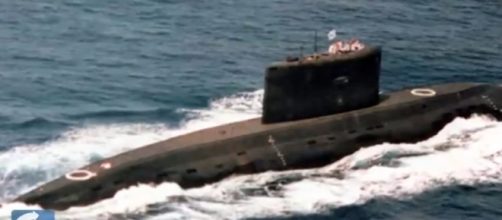In an attempt to gain naval balance in the Persian Gulf, the Iranian government is planning on building a modern submarine and a new type of torpedo capable of contesting U.S. dominance in the region. According to U.S. Naval Intelligence, the Iranians are locally building the submarine which is based on the North Korean Yono class design.
How will Iran benefit from initiating a resource intensive project?
Iran has a fledgling fleet of submarines, but it is well-equipped and can stand on its own to some extent. However, the overwhelming power of the United States and its presence in the area stifles the expansion of Iran's navy.
Because of this, the naval policy adopted by Iran is a guerrilla type warfare focusing on stealth and hit-and-run tactics.
At the moment, the operational submarine fleet of Iran is a twenty-one mini-submarine fleet of the Ghadir-class, a locally built design, the Fateh-class semi-heavy submarines and three large Kilo-class submarines purchased from Russia in the 1990s. This submarine fleet can sufficiently patrol the Indian Ocean but is not capable of projecting power on the Persian Gulf and in the Straits of Hormuz.
Iran needs far superior vessels that can stealthily traverse the littoral waters of the straits. The recently launched Fateh-class semi-heavy submarine was lauded by Tehran media as the "Conqueror," able to stay at sea for weeks on end as it has a range of more than 3,000 km.
Yet, this is still not enough to gain naval superiority, thus a need to build another model was necessary and it is the Besat class. This submarine is reported to be capable of firing cruise missiles and will be armed with a new kind of high-speed torpedo called "Hoot," which uses jet propulsion to achieve record speeds under water.
What is the response of the United States over Iranian naval build-up?
U.S. diplomacy in the Middle East went a radical turn when President Trump made a $110 billion weapons deal with Saudi Arabia in exchange to support a coalition against terrorism and Iran. Riyadh is seemingly keeping up with this deal as they have begun a "witch hunt" of states harboring terrorists and links to Iran.
Qatar is the first nation to suffer the growing diplomatic might of Saudi as it was effectively embargoed due to alleged links to the Taliban, the Houthis, Muslim Brotherhood, and Iran. It would seem that through Trump's unorthodox diplomatic skill, he has managed to gain a strong Muslim ally in the Middle East.


